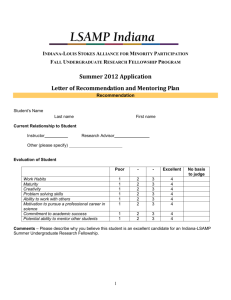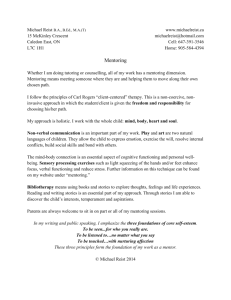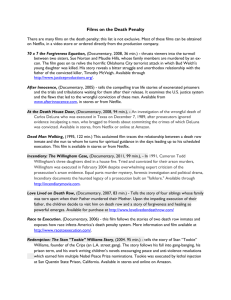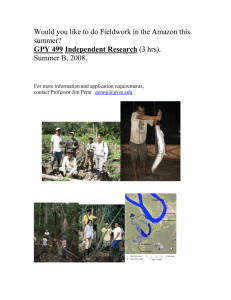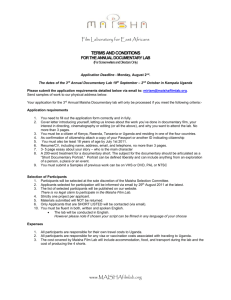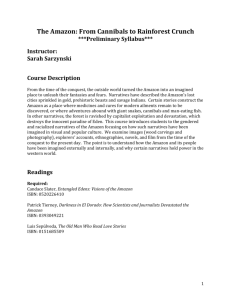mentoring statement - George Mason University
advertisement
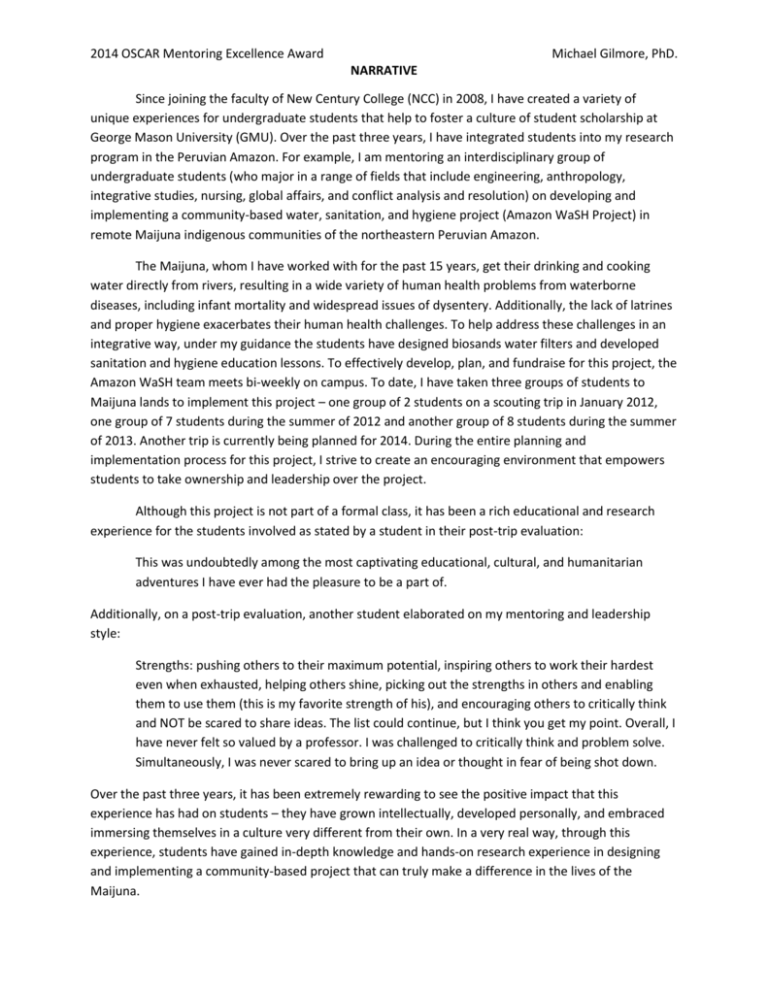
2014 OSCAR Mentoring Excellence Award Michael Gilmore, PhD. NARRATIVE Since joining the faculty of New Century College (NCC) in 2008, I have created a variety of unique experiences for undergraduate students that help to foster a culture of student scholarship at George Mason University (GMU). Over the past three years, I have integrated students into my research program in the Peruvian Amazon. For example, I am mentoring an interdisciplinary group of undergraduate students (who major in a range of fields that include engineering, anthropology, integrative studies, nursing, global affairs, and conflict analysis and resolution) on developing and implementing a community-based water, sanitation, and hygiene project (Amazon WaSH Project) in remote Maijuna indigenous communities of the northeastern Peruvian Amazon. The Maijuna, whom I have worked with for the past 15 years, get their drinking and cooking water directly from rivers, resulting in a wide variety of human health problems from waterborne diseases, including infant mortality and widespread issues of dysentery. Additionally, the lack of latrines and proper hygiene exacerbates their human health challenges. To help address these challenges in an integrative way, under my guidance the students have designed biosands water filters and developed sanitation and hygiene education lessons. To effectively develop, plan, and fundraise for this project, the Amazon WaSH team meets bi-weekly on campus. To date, I have taken three groups of students to Maijuna lands to implement this project – one group of 2 students on a scouting trip in January 2012, one group of 7 students during the summer of 2012 and another group of 8 students during the summer of 2013. Another trip is currently being planned for 2014. During the entire planning and implementation process for this project, I strive to create an encouraging environment that empowers students to take ownership and leadership over the project. Although this project is not part of a formal class, it has been a rich educational and research experience for the students involved as stated by a student in their post-trip evaluation: This was undoubtedly among the most captivating educational, cultural, and humanitarian adventures I have ever had the pleasure to be a part of. Additionally, on a post-trip evaluation, another student elaborated on my mentoring and leadership style: Strengths: pushing others to their maximum potential, inspiring others to work their hardest even when exhausted, helping others shine, picking out the strengths in others and enabling them to use them (this is my favorite strength of his), and encouraging others to critically think and NOT be scared to share ideas. The list could continue, but I think you get my point. Overall, I have never felt so valued by a professor. I was challenged to critically think and problem solve. Simultaneously, I was never scared to bring up an idea or thought in fear of being shot down. Over the past three years, it has been extremely rewarding to see the positive impact that this experience has had on students – they have grown intellectually, developed personally, and embraced immersing themselves in a culture very different from their own. In a very real way, through this experience, students have gained in-depth knowledge and hands-on research experience in designing and implementing a community-based project that can truly make a difference in the lives of the Maijuna. 2014 OSCAR Mentoring Excellence Award Michael Gilmore, PhD. NARRATIVE In addition to the Amazon WaSH Project, I am currently working on a film project (officially called the Maijuna Documentary Film Project) with two undergraduate students and a documentary filmmaker. Our documentary film will tell the story of the Maijuna as they fight to save their ancestral lands and traditional culture from a road-building and palm oil plantation project, which is being pushed by the Peruvian Government. This documentary film is critically important because it will help to get the word out about the plight of the Maijuna and help them in their struggle to conserve their threatened ancestral homeland and traditional culture. We envision that this film will not only be used to help educate the world about the struggles of the Maijuna but that it will also be used by the Maijuna to tell policy makers and politicians in Peru why the road and plantation should not be built. This project is immersing the participating students in real-world issues dealing with biological and cultural conservation, human rights, and environmental justice, among others. So far, the students have been integrally involved in the design of the project as well as fundraising activities. Fieldwork and filming will take place during the summer of this year providing the students with an intensive experiential learning opportunity. In conclusion, these experiences are providing undergraduate students with unique, life changing, and immersive research and educational opportunities. My mentoring style and philosophy helps to inspire students to reach their maximum potential while taking ownership and leadership over projects. It is worth noting that the projects detailed are all-volunteer initiatives for both the students and me yet the passion that the students bring to these projects and the work that they accomplish are truly admirable. I look forward to continuing to foster a culture of student scholarship at Mason by developing and carrying out projects in Maijuna lands with undergraduate students for years to come.


